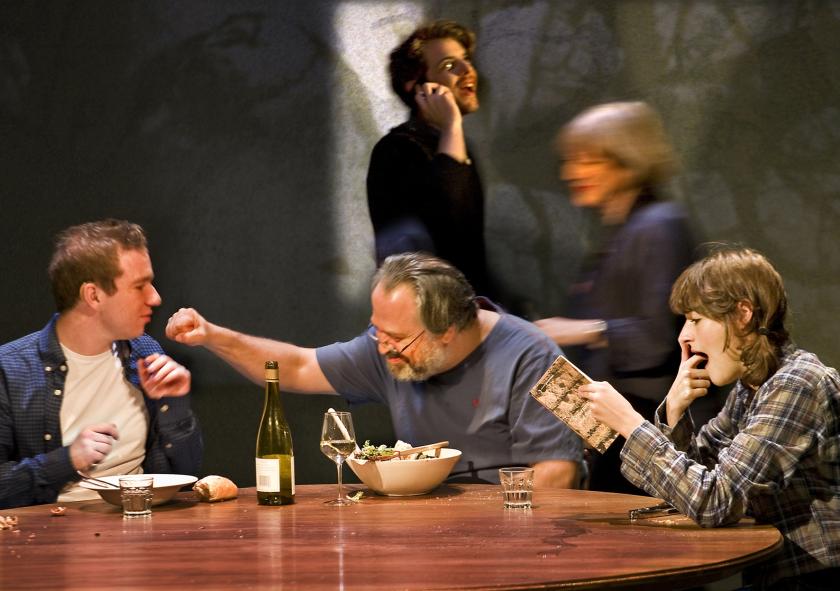t's a nice historical twist that the Royal Court in London, a theatre once known for its kitchen-sink dramas, is having such a great run with plays about the middle classes; following the joys of Posh, Wanderlust and Clybourne Park comes Nina Raine’s Tribes, a belter of a play about a bohemian family who talk a hell of a lot but do very little actual communicating.
Tribes opens with academic Christopher (Stanley Townsend, giving a huge performance) on his high horse as usual about literature and classical music. He and his wife, Beth (Kika Markham), a writer, and twentysomething children Ruth (Phoebe Waller-Bridge) and Daniel (Harry Treadaway) are seated around a huge dining table, where opinions and insults are thrown around as the family engage in a comical verbal warfare that has clearly been enacted many times before, the seemingly affectionate joshing of a close family. Oblivious to the blather is the eldest child, Billy (affectingly played by Jacob Casselden), who is deaf.
Raine’s sparkling and acerbic dialogue sounds utterly believable
Christopher is very sure of his opinions and unafraid to express them in often fruity language. There are some nicely judged un-PC jokes and he tells Daniel and Ruth, both unemployed graduates who have recently returned to the family home, that he wishes they would “sod off” and that Daniel’s ex-girlfriend was “a northern twat”. Christopher and Beth bicker away and they pride themselves on having brought up their children to express themselves freely at all times. Trouble is that Billy, an expert lip-reader, can’t get a word in edgeways.
But then Billy meets Sylvia (Michelle Terry, wonderful throughout), who is going deaf. She comes from a deaf family who have always communicated in sign and she introduces him to the deaf world that he has, as a non-signer who went to a mainstream school, never joined, and in her Billy sees his escape from his possessive, insular family. As Sylvia becomes part of their tribe, the cracks begin to show.
Tribes isn’t a play about deafness as such, although it has some interesting insights into “the deaf community” that Christopher is so breezily dismissive of; Sylvia’s description of its hierarchy - being born deaf puts you above those who become deaf - would be funny if it weren't so true. Rather, it’s about communication as we see Billy struggle to find his voice in a family that shouts rather than listens, and some of the play’s most captivating moments are when little is said (the scene in which Daniel and Billy speak honestly to each other for the first time is particularly poignant), or when the characters’ sign language is projected in words on the large upstage gauze in Mark Thompson’s simple but effective design. The notion that there is often more meaning in what is left unsaid rather than in words themselves was never more clear.
The first act of Tribes is terrific, even if the second feels a little rushed to its resolution in Roger Michell’s assured and engaging production. The actors are uniformly superb (although Beth and Ruth feel underwritten) and Raine’s sparkling and acerbic dialogue sounds utterly believable as she describes the need for us all to belong somewhere and the limits of parental love. As a friend of mine remarked last night, “If only we could be fucked up by such interesting people.” I couldn’t put it better myself.















Add comment